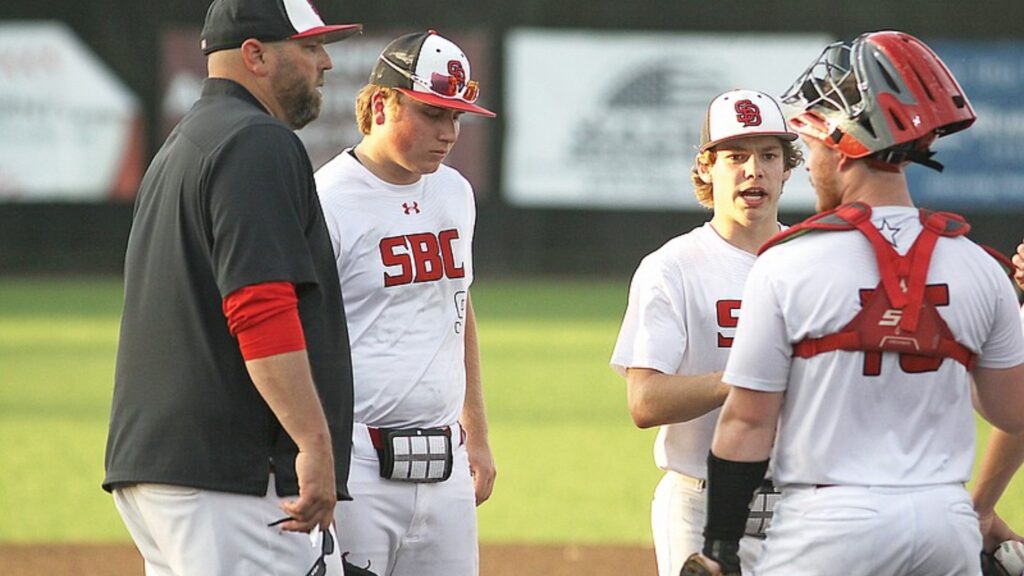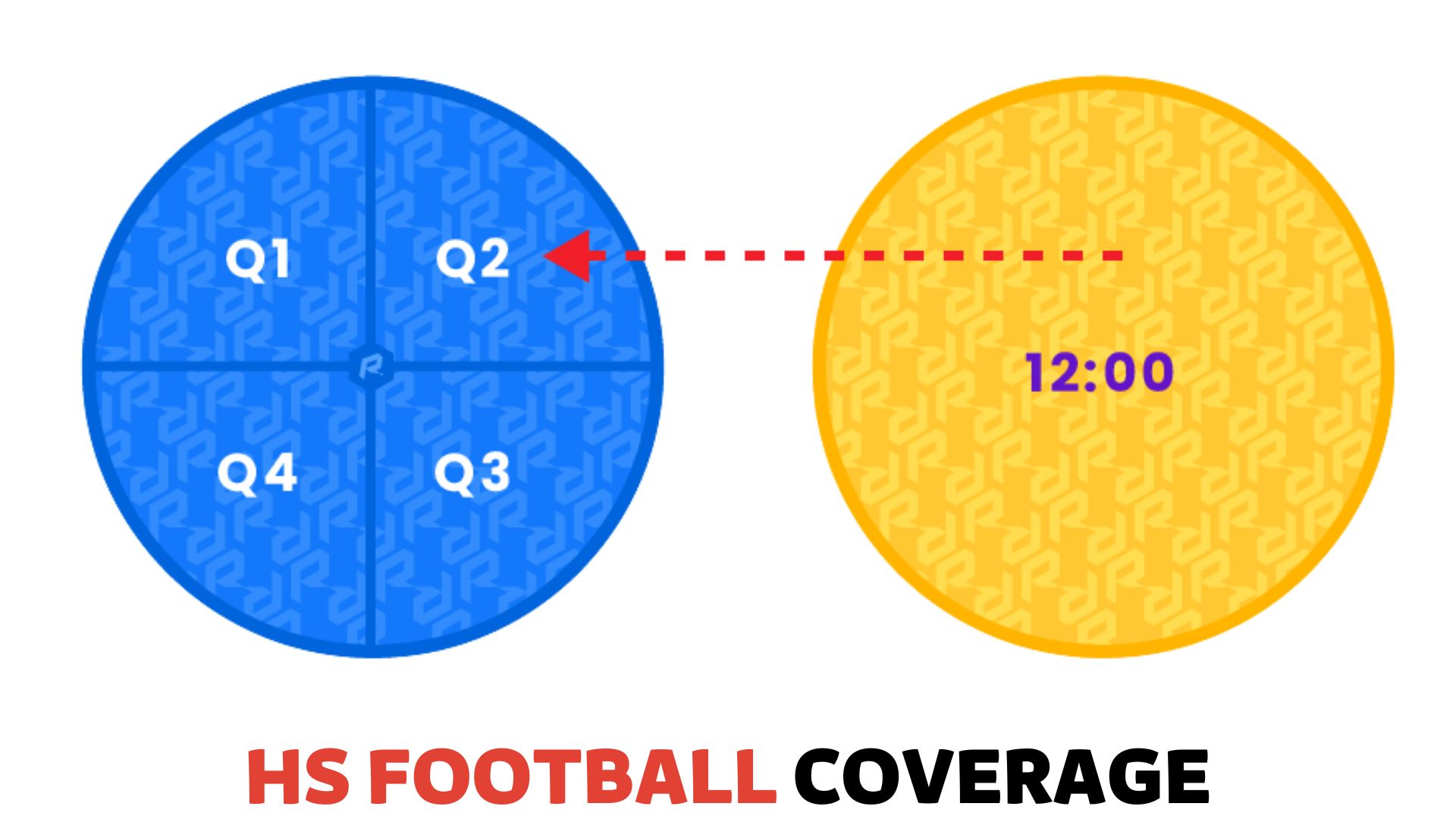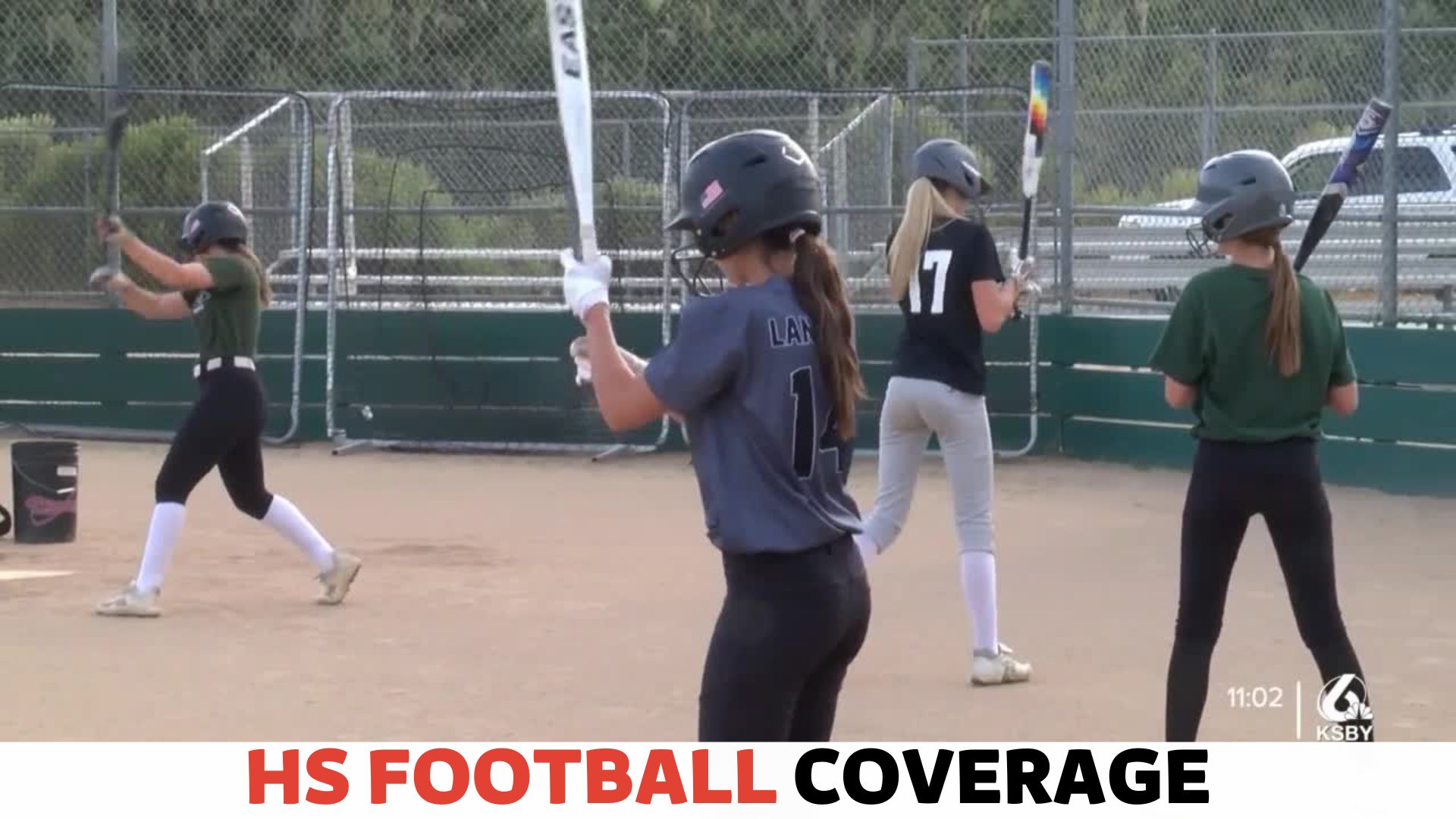
To become a high school baseball coach, you must obtain coaching experience and knowledge of the sport through playing or coaching at lower levels. Additionally, you must acquire any necessary certifications or licenses.
Are you passionate about baseball and interested in coaching at the high school level? Becoming a high school baseball coach is a rewarding endeavor requiring experience, knowledge, and a love for the sport.
You already have a good foundation if you have played or coached lower-level baseball.
However, if you are new to coaching, gaining experience and expanding your knowledge of the game is essential.
This can be achieved through volunteering as an assistant coach or participating in coaching clinics.
Additionally, acquiring the necessary certifications or licenses will further enhance your coaching prospects. This guide will explore the steps to becoming a high school baseball coach.
The Role and Impact of a High School Baseball Coach

A high school baseball coach plays a vital role in shaping the skills and character of young athletes. Their impact extends beyond the field.
These coaches provide mentorship, teamwork, and discipline, cultivating a strong work ethic and a love for the game.
Becoming a high school baseball coach requires knowledge of the game, communication skills, and a passion for teaching and inspiring young players.
A High School Baseball Coach’s Influence on Players’ Development
When it comes to high school baseball, the role and impact of a coach is of utmost importance. A high school baseball coach plays a crucial role in shaping not only the players’ skills and abilities but also their character and mindset.
Their influence goes far beyond the field, as they are responsible for fostering a positive and supportive environment that encourages growth, learning, and teamwork.
The coach’s impact on players’ development cannot be understated. Through expert guidance, mentorship, and training, they can transform young athletes into well-rounded individuals on and off the field.
Let’s look at a high school baseball coach’s influence on players’ development.
The Benefits of Having a Dedicated and Knowledgeable Coach
A dedicated and knowledgeable coach can make all the difference in a high school baseball team’s success. Here are some of the benefits of having such a coach:
- Expertise and experience: A knowledgeable coach brings years of experience and expertise. They have an in-depth understanding of the game and can impart valuable insights to their players, helping them develop essential skills and strategies. With their guidance, players can learn the fundamentals of baseball, refine their techniques, and enhance their gameplay.
- Mentorship and leadership: A dedicated coach serves as a mentor and a leader. They set a positive example for their players, instilling important values such as discipline, respect, and perseverance. Their leadership skills inspire and motivate the team, fostering a culture of hard work, determination, and sportsmanship.
- Individualized attention: A coach who truly cares about their players’ development will provide individualized attention. They recognize that each player is unique and has their strengths and weaknesses. By identifying areas for improvement and tailoring their coaching approach accordingly, they can help players reach their maximum potential.
- Building confidence: Confidence is key in any sport, and a coach plays a vital role in building it. A dedicated coach can boost their players’ self-esteem and belief in their abilities through constructive feedback, encouragement, and consistent support. This confidence extends beyond the playing field, empowering players to overcome challenges, take risks, and excel in other areas of life.
- Life lessons and character development: A high school baseball coach’s influence goes beyond athletic skills. They can shape their players’ character and instill valuable life lessons. Through teamwork, resilience, and sportsmanship, coaches foster important values that resonate with players long after they hang up their cleats.
A high school baseball coach’s role and impact are truly invaluable. Their dedication, expertise, and guidance not only shape players into skilled athletes but also into well-rounded individuals who are equipped to take on life’s challenges.
High school baseball players can grow, learn, and thrive on and off the field with a committed and knowledgeable coach.
Qualities of a Successful High School Baseball Coach
Being a high school baseball coach requires more than just knowledge. It demands a unique set of qualities that can inspire, motivate, and guide young athletes.
If you aspire to become a successful high school baseball coach, you should possess specific traits. In this section, we will explore three key qualities that can make a difference in shaping the future of your baseball team.
These qualities include leadership skills that inspire and motivate players, a strong knowledge of baseball strategies and techniques, and effective communication and interpersonal skills.
Leadership Skills That Inspire and Motivate Players
A successful high school baseball coach is a true leader who can inspire and motivate their players to reach their full potential.
They understand the importance of setting goals, creating a positive team culture, and fostering a sense of unity among the players.
This requires the ability to lead by example, demonstrate enthusiasm for the game, and instill a strong work ethic in the team.
A great coach can effectively communicate expectations, provide constructive feedback, and encourage players to push beyond their comfort zones.
By displaying strong leadership skills, a coach can ignite a passion for the game in their players and propel them toward success.
Strong Knowledge of Baseball Strategies and Techniques
Another crucial quality for a successful high school baseball coach is a deep understanding of baseball strategies and techniques.
This encompasses knowledge of offensive and defensive tactics, effective base running, pitching mechanics, and defensive positioning.
A coach who grasps these elements well can devise well-rounded game plans and make quick decisions during matches.
By continuously expanding their knowledge of the sport, a coach can analyze opponents, develop strategies to exploit weaknesses, and adapt their approach.
This expertise enhances a coach’s ability to guide their team to victory and earns the players’ respect.
Effective Communication and Interpersonal Skills
A high school baseball coach must communicate effectively with players, parents, fellow coaches, and school administrators.
Clear and concise communication ensures everyone understands their roles, responsibilities, and expectations.
A coach must be able to provide instructions, give feedback, and offer support in a way that resonates with each individual.
This requires great listening skills, empathy, and the ability to establish trust with the players.
Building strong relationships fosters open communication and creates an environment where players feel comfortable seeking guidance and sharing their concerns.
Effective coaches use interpersonal skills to connect with their team, building a strong foundation for success.
By embodying these qualities, you can set yourself on the path to becoming a highly effective high school baseball coach.
Developing strong leadership skills, acquiring a deep knowledge of baseball strategies and techniques, and honing your communication and interpersonal abilities will empower you to positively impact the lives of your players, both on and off the field.
Step 1: Enhancing Your Baseball Knowledge and Experience
Learn the fundamentals of baseball and gain experience to become a successful high school baseball coach.
Develop your knowledge and skills through dedicated learning and practice sessions, enabling you to guide and mentor aspiring athletes in the sport.
Aspiring to become a high school baseball coach? The first step on your journey is to enhance your baseball knowledge and experience.
By immersing yourself in baseball as a player and a coach, you’ll develop the skills and expertise to guide and motivate young athletes. Here are a few key ways to elevate your baseball acumen:
Playing Baseball at a Competitive Level
Playing baseball at a competitive level is one of the most effective ways to enhance your knowledge and experience.
Actively participating in baseball leagues, whether in school, local amateur leagues, or even semi-professional teams, can provide invaluable insights into the game.
By honing your skills and tactical understanding, you’ll be better equipped to teach and mentor your players.
Gaining Experience Through Coaching Clinics and Workshops
To become a high school baseball coach, investing time in learning the art of coaching is crucial.
Attending coaching clinics and workshops can help you refine your coaching techniques, learn the latest strategies, and understand how to manage individual players and the team.
By surrounding yourself with experienced coaches and industry professionals, you can learn from their successes and challenges, further enhancing your coaching abilities.
Additionally, coaching clinics and workshops offer an excellent opportunity to network and connect with other coaches, creating a support system of like-minded individuals who share your passion for the game.
These connections can provide valuable insights, advice, and potential coaching opportunities.
To summarize, if you’re serious about becoming a high school baseball coach, prioritize enhancing your baseball knowledge and experience.
Play the game competitively to gain firsthand insight into its intricacies. Also, remember to attend coaching clinics and workshops to learn from experienced professionals and expand your network.
By constantly seeking opportunities to learn and grow, you’ll be on your way to becoming a successful high school baseball coach who can inspire and guide young athletes.
Step 2: Obtaining Education and Certification
Obtaining the necessary education and certification is essential to becoming a successful high school baseball coach.
This step will equip you with the knowledge and credentials to lead and effectively guide your team.
To pursue a career in coaching, there are certain educational requirements and certification programs that you should consider.
Earning a Degree in Physical Education or Related Field
One of the first steps in obtaining the necessary education for coaching high school baseball is earning a degree in physical education or a related field.
This degree will provide you with a strong foundation in exercise science, anatomy, physiology, and kinesiology, which are crucial in understanding the mechanics of the sport and developing training programs for your athletes.
During your degree program, you will have the opportunity to study various coaching strategies and techniques and gain practical experience through internships or volunteering with local sports teams.
This hands-on experience will help you develop your coaching skills and gain a deeper understanding of team sports dynamics.
Completing Coaching Certification Programs
Alongside earning a degree, completing coaching certification programs is equally important in becoming a high school baseball coach.
These programs provide specialized training designed for coaching and help you gain further expertise in the field.
Several coaching certification programs are available, such as the American Sport Education Program (ASEP) and the National Federation of State High School Associations (NFHS) Coaching Certification Program.
These programs cover various aspects of coaching, including leadership skills, ethical coaching practices, player safety, and team management.
These certification programs enhance your coaching abilities and demonstrate your commitment to professional development and maintaining the highest standards within the coaching profession.
Conclusion
Obtaining education and certification is integral to becoming a high school baseball coach.Earning a degree in physical education or a related field provides you with the necessary knowledge and understanding of sports science.
Completing coaching certification programs hones your coaching skills and showcases your dedication to the profession.
Investing in your education and obtaining the relevant certifications equips you with the tools needed to guide and inspire your team to succeed.
Step 3: Gaining Coaching Experience
One crucial step to becoming a high school baseball coach is gaining coaching experience.
Getting hands-on experience in coaching allows you to sharpen your skills and demonstrates your commitment and passion for the sport to potential employers.
There are various ways to gain coaching experience, including assisting youth baseball teams and volunteering as an assistant coach in high school.
Assisting With Youth Baseball Teams
Assisting with youth baseball teams is an excellent way to gain coaching experience and contribute to developing young players.
Working with youth teams can help you refine your coaching techniques, learn how to communicate effectively with players of different age groups, and better understand the fundamentals of the game.
When assisting with youth baseball teams, consider the following:
- Look for local youth baseball leagues or organizations that require coaching staff. Volunteer your time and expertise to support these teams.
- Collaborate with experienced coaches and learn from their strategies and approaches to coaching youth players.
- Focus on providing a positive and nurturing environment that encourages skill growth and instills a love for the game.
- Emphasize the importance of teamwork, sportsmanship, and leadership to help young players develop on and off the field.
- Gain experience in organizing practices, coordinating game schedules, and providing constructive feedback to players.
Volunteering as an Assistant Coach in High School
Another valuable opportunity to gain coaching experience is volunteering as an assistant coach in a high school baseball program.
Assisting a high school team allows you to work directly with older players who are more advanced in their skills and understanding of the game.
Consider the following points when volunteering as an assistant coach in high school:
- Contact local high schools with baseball programs and express your interest in volunteering as an assistant coach. Highlight your previous youth coaching experience and your passion for helping young athletes succeed.
- Show a willingness to learn from the head coach and collaborate effectively with the coaching staff.
- Assist in coordinating practices, developing game plans, and providing individualized instruction to players.
- Learn the rules and regulations for high school baseball and ensure compliance throughout the season.
- Develop relationships with players, earn their trust, and be a positive role model on and off the field.
Step 4: Building Relationships and Networking
Building relationships and networking are crucial to becoming a high school baseball coach. By connecting with others in the field, you can gain valuable insights, learn from experienced coaches, and create opportunities for your coaching career.
Building relationships and networking is crucial for success in any coaching profession, including high school baseball coaching.
Connecting with other coaches and sports professionals and attending coaching conferences and events can expand your knowledge, learn from experienced individuals, and create a supportive network of like-minded professionals.
This step can open up doors to new opportunities, provide valuable insights, and foster collaboration in the baseball coaching community.
Connecting With Other Coaches and Sports Professionals
Connecting with other coaches and sports professionals is one of the best ways to enhance your coaching skills and gain new perspectives.
By collaborating and sharing experiences, you can learn from their successes and challenges, gaining valuable insights to improve your coaching abilities.
- Attend local coaching events and workshops.
- Jump on opportunities to assist other coaches during their practices or games.
- Join online communities and forums devoted to coaching.
- Reach out to experienced coaches in your area for mentorship or advice.
By actively engaging with other coaches, you can build a strong support system and foster a sense of camaraderie within the coaching community.
Attending Coaching Conferences and Events
Attending coaching conferences and events provides invaluable opportunities to learn from industry experts, gain exposure to new coaching techniques and strategies, and connect with fellow sports professionals.
- Researching and identifying coaching conferences and events relevant to your coaching niche or interests
- Looking for conferences that feature renowned speakers and workshops focusing on areas you want to improve or learn more about
- Planning your attendance well in advance to ensure you can make the most out of the event
- Participate in workshops, networking sessions, and panel discussions to maximize your learning experience.
By attending coaching conferences and events, you can stay up-to-date with the latest trends and best practices in coaching, expand your professional network, and gain inspiration to develop your coaching skills further.
Player Development and Skill Training
As a high school baseball coach, one of your primary responsibilities is to foster player development and skill training.
You aim to help each player reach their full potential and contribute to the team’s success. It’s essential to focus on individual and team practice drills and implement coaching strategies for player improvement to achieve this.
Individual and Team Practice Drills
Individual and team practice drills play a vital role in the development of each player. These drills help improve specific skills and enhance teamwork and overall performance.
Here are a few practice drill ideas you can incorporate into your coaching:
- Catch and Throw Drills: Practice various throwing techniques to focus on accuracy and arm strength. Use cones or targets to simulate game situations and encourage players to aim for precision.
- Hitting Drills: Develop proper swinging techniques by incorporating soft toss, tee work, and live pitch batting practice drills. Encourage players to identify weaknesses and work on their timing and contact.
- Base-running drills: These drills enhance speed and smart baserunning by teaching players specific skills, such as stealing bases, rounding bases efficiently, and reading opposing players’ movements.
- Fielding Drills: Focus on fielding ground balls, catching fly balls, and throwing accuracy. Design specific drills to improve players’ footwork, reaction time, and overall fielding skills.
- Pitching Drills: Work on mechanics, control, and developing different pitches. To refine pitchers ‘ skills, incorporate drill concepts such as long toss, bullpen sessions, and simulated game situations.
Coaching Strategies for Player Improvement
It’s important to implement effective coaching strategies to ensure optimal player improvement. Here are a few tips to help your players reach their full potential:
- Individualized Attention: Each player has unique strengths and areas for improvement. Tailor your coaching approach to meet each player’s needs and provide personalized feedback and guidance.
- Positive Reinforcement: Acknowledge players’ efforts and progress to boost their confidence and motivation. Celebrate small victories, offer constructive feedback, and provide encouragement to help them overcome challenges.
- Goal Setting: Set measurable and attainable goals with each player to track their progress. Regularly assess their performance and adjust training plans to keep them focused and motivated.
- Video Analysis: Utilize video analysis tools to review players’ techniques and identify areas for improvement. Break down their performance, provide visual feedback, and help them make necessary adjustments.
- Game-Day Preparation: Emphasize the importance of mental preparation, situational awareness, and understanding game strategies. Teach players to analyze opponents, anticipate game situations, and make quick decisions.
Incorporating these individual and team practice drills and implementing coaching strategies for player improvement will prepare you for success as a high school baseball coach.
Remember, each player’s development is a journey, and with your guidance and expertise, they can reach new heights on and off the field.
Game Management and Strategy
Game management and strategy are crucial aspects of being a high school baseball coach. Throughout a game, coaches make in-game decisions and employ various tactics to maximize their team’s chances of success.
Additionally, analyzing opponent teams and adjusting strategies is vital to stay competitive.
In this section, we will explore the importance of game management and strategy and delve into specific areas such as in-game decision-making and tactics and analyzing opponent teams.
In-game Decision Making and Tactics
During a baseball game, coaches are faced with numerous decisions that can significantly impact the outcome of the game.
In-game decision-making involves assessing the current situation, considering various factors, and determining the best course of action swiftly.
Some key aspects of in-game decision-making include:
- Deciding when to make substitutions or changes to the lineup.
- Choosing the right pitcher for different situations.
- Calling plays or signals to execute offensive strategies.
- Adjusting defensive positioning to counter the opponent’s strengths.
Effective in-game decision-making requires analyzing the situation quickly, anticipating potential scenarios, and making informed choices that give the team the best chance to succeed.
Analyzing Opponent Teams and Adjusting Strategies Accordingly
An essential aspect of game management is analyzing the strengths and weaknesses of the opponent teams.
By understanding the opposing team’s tendencies, coaches can develop strategies that exploit weaknesses and capitalize on opportunities.
This process involves detailed scouting and analyzing opponents’ previous games, player strengths, and performance statistics.
Some key factors to consider when analyzing opponent teams include:
- Studying the opponent team’s batting and pitching lineups to identify key players.
- Assessing their defensive strengths and weaknesses.
- Reviewing game footage to spot patterns and tendencies.
- Considering the opponent’s pitching staff and tendencies in different situations.
Based on this analysis, coaches can adjust their team’s game plan by modifying offensive strategies, altering defensive positioning, or making specific player assignments.
Adapting strategies based on the opponent’s strengths and weaknesses will increase the team’s chances of success on the field.
Building a Team Culture and Fostering Teamwork
Building a strong team culture and fostering teamwork are crucial for the success of any high school baseball coach.
Creating a positive and inclusive team environment and developing trust and camaraderie among players are the key elements to achieve this.
By implementing these strategies, coaches can help their players gain confidence, improve their skills, and work together towards a common goal.
This article will discuss effective ways to create a positive team environment and develop trust and camaraderie.
Creating a Positive and Inclusive Team Environment
Creating a positive team environment is the foundation for a successful baseball team. It is essential to make every player feel valued and included.
Here are some tips to help coaches create a positive and inclusive team environment:
- Encourage open communication: Foster an environment where players feel comfortable expressing their thoughts and ideas. Encourage active listening and provide opportunities for players to voice their opinions.
- Promote a growth mindset: Instill in your players the belief that their abilities can be developed through hard work and dedication. Emphasize the importance of learning from failures and using them as opportunities for growth.
- Set clear expectations: Establish clear guidelines and expectations for behavior on and off the field. Make sure every player understands their role and responsibilities within the team.
- Encourage teamwork: Create activities and drills that promote collaboration and teamwork. Encouraging players to work together towards a common goal will help foster a sense of unity within the team.
Developing Trust and Camaraderie Among Players
Building trust and camaraderie among players is essential for creating a cohesive and successful team. Here are some strategies to develop trust and camaraderie within your team:
- Lead by example: Show your players what it means to be trustworthy and respectful. Be consistent in your actions and hold yourself accountable to the same standards you expect from your players.
- Promote team-building activities: Organize team-building activities to strengthen the bond between players. Activities like team dinners, group outings, and community service projects can help foster a sense of camaraderie.
- Encourage support and encouragement: Create an atmosphere where players support and encourage each other. Encourage players to celebrate each other’s successes and provide constructive feedback during practice and games.
- Establish team goals: Set collective goals that the entire team can work towards. This will help create a shared purpose and motivate players to support and trust each other in achieving those goals.
High school baseball coaches can lay the foundation for a successful and cohesive team by focusing on creating a positive and inclusive team culture and developing trust and camaraderie.
These strategies will enhance the players’ overall experience and contribute to their individual and team growth.
Through a strong team culture and teamwork, high school baseball coaches can nurture the next generation of talented athletes and create a legacy of success.
Handling Administrative Tasks and Responsibilities
Being a high school baseball coach involves more than just coaching players on the field. You are also responsible for handling various administrative tasks and responsibilities.
From managing player eligibility and paperwork to balancing coaching duties with administrative obligations, these tasks are crucial for the team’s smooth functioning.
This section will explore the key aspects of handling administrative tasks and responsibilities as a high school baseball coach.
Managing Player Eligibility and Paperwork
One of the primary administrative tasks as a high school baseball coach is managing player eligibility and paperwork.
This involves ensuring that all players meet the academic and age requirements set by the school and league. To effectively manage player eligibility, you need to:
- Stay updated with the eligibility requirements: It is essential to be aware of the eligibility rules set by your school and league. Stay informed about any changes or updates to ensure compliance.
- Collect and review necessary documentation: You must collect and review documents such as birth certificates, academic transcripts, health forms, and any other paperwork required for player eligibility.
- Communicate with school administrators: Regular communication with school administrators is necessary to address any eligibility concerns or issues that may arise. Maintain open lines of communication to ensure all paperwork is properly processed.
Balancing Coaching Duties With Administrative Obligations
As a high school baseball coach, balancing coaching duties and administrative obligations is essential. To effectively handle both aspects, consider the following:
- Create a schedule: Develop a schedule that allows you to allocate time for coaching sessions, practice, games, and administrative tasks. Prioritize tasks and allocate specific time slots to ensure everything gets accomplished.
- Delegate responsibilities when possible: If you have assistant coaches or other team members who can handle certain administrative tasks, delegate them accordingly. This will help lighten your workload and allow you to focus more on coaching.
- Utilize technology: Use tools and software that streamline administrative tasks. Use online communication, scheduling, and documentation platforms to save time and stay organized.
Dealing With Athlete and Parent Expectations
As a high school baseball coach, it’s crucial to effectively manage the expectations of both your athletes and their parents.
Building strong relationships and clear lines of communication can help ensure a positive and productive coaching experience for everyone involved.
This article will discuss two key aspects of handling athlete and parent expectations: communicating effectively with parents, handling conflicts, and resolving issues professionally.
Communicating Effectively With Parents
When it comes to managing athlete and parent expectations, open and effective communication is paramount.
You can create a supportive and collaborative environment that fosters trust and understanding by proactively engaging with parents. Here are a few strategies to consider:
- Host a pre-season meeting: Schedule a meeting before the season starts to introduce yourself, outline your coaching philosophy, and establish clear expectations.
- Provide regular updates: Keep parents informed about team schedules, practice plans, and any changes that may arise. Utilize email, a team website, or a dedicated communication app to ensure consistent and timely updates.
- Individual parent meetings: Schedule one-on-one meetings with parents to discuss their child’s progress and address any concerns or questions they may have. This personal touch can foster a stronger coach-parent partnership.
- Listen actively: When parents approach you with concerns or feedback, listen attentively and respond empathetically. Show that you value their input and are committed to the success and well-being of their child.
- Establish boundaries: Communicate your availability and preferred methods of communication to parents. Setting boundaries can help manage expectations and prevent misunderstandings.
Handling Conflicts and Resolving Issues Professionally
Conflict is not uncommon when dealing with athlete and parent expectations. However, it’s essential to handle conflicts professionally and work towards resolving any issues that may arise. Here are some recommended steps to guide you:
- Address concerns directly: When a conflict arises, address it promptly and directly. Schedule a meeting with the concerned party to understand their perspective and find common ground.
- Stay calm and composed: Regardless of the situation, maintain a professional demeanor. Stay calm, listen actively, and avoid becoming defensive or confrontational.
- Seek a win-win solution: Work with the parties to find mutually beneficial solutions. Encourage compromise and ensure that the final resolution aligns with the best interests of the athlete and the team.
- Document interactions: Record all conversations and correspondence related to conflicts or issues. A paper trail can be helpful if further action or documentation is required.
- Involve school administration: If a conflict persists or escalates, involve the school administration or athletic director. They can provide guidance and support in navigating challenging situations.
Managing Time and Balancing Commitments
As a high school baseball coach, managing time and balancing commitments is essential. Coaches can create a successful and productive team by effectively organizing practices, games, and player development.
Additionally, establishing open communication with players, parents, and school staff helps to maintain a harmonious balance between coaching responsibilities and personal life.
Managing time and balancing commitments is essential for anyone looking to become a high school baseball coach.
Juggling coaching obligations with personal and professional life can be challenging, but with proper planning and prioritization, it can be achieved successfully.
Juggling Coaching Obligations With Personal and Professional Life
Coaching a high school baseball team involves a significant commitment of time and effort. In addition to attending practices and games, you must plan training sessions, attend meetings with the school administration, and communicate with players and parents.
It is crucial to establish a balance between your coaching responsibilities and your personal and professional life.
Prioritizing Tasks and Maintaining Work-life Balance
To manage your time effectively, start by prioritizing your tasks. Make a list of all your coaching commitments, including practices, games, meetings, and administrative tasks.
Determine which tasks are time-sensitive and require immediate attention. This will help you plan your schedule accordingly.
Once you have identified your priorities, it’s important to create a schedule that allows for a healthy work-life balance.
Allocate specific time slots for coaching activities, ensuring you have enough time for other important aspects of your life, such as spending time with family or pursuing personal interests.
Remember, a balanced lifestyle is crucial for your overall well-being and effectiveness as a coach.
Ensuring Each H3 Heading Adheres to HTML Syntax
Juggling Coaching Obligations With Personal And Professional Life
Prioritizing Tasks And Maintaining Work-life Balance
Ensuring Each H3 Heading Adheres To Html Syntax
By following these strategies, you can effectively manage your time and balance your commitments as a high school baseball coach.
It may require some trial and error to find the right balance, but with perseverance and determination, you can create a fulfilling coaching career while still having time for yourself and the other important aspects of your life.
Remember, self-care and maintaining a healthy work-life balance are crucial for your long-term success as a coach.
Continuing Education and Professional Development Opportunities
As a high school baseball coach, it’s important to continually improve your skills and knowledge to enhance the players’ experience and maximize their potential.
Continuing education and professional development opportunities are crucial to expanding your coaching abilities and staying current with the latest techniques and strategies in the game.
By taking advantage of these opportunities, you can enrich your coaching career and provide valuable guidance to your team.
H3attending Coaching Clinics and Workshops/h3
One effective way to broaden your coaching expertise is by attending coaching clinics and workshops. These events bring together experienced and knowledgeable coaches who share their insights and experiences.
By participating in these sessions, you have the chance to learn new coaching methods, gain fresh perspectives, and stay up to date on the emerging trends in the baseball world.
During coaching clinics, experts in the field often deliver informative lectures and interactive presentations. They may discuss topics like advanced pitching techniques, effective batting strategies, defensive positioning, and game management.
These clinics provide a platform for coaches to network with their peers, exchange ideas, and ask questions, fostering a sense of community and growth within the coaching fraternity.
H3seeking Mentorship and Learning From Experienced Coaches/h3
Another valuable opportunity for professional development is seeking mentorship from experienced coaches.
Finding a mentor who has achieved success in the field can be instrumental in your growth as a baseball coach.
Mentors can provide personalized guidance, offer insights into the coaching profession, and share their experiences to help you navigate challenges and make informed decisions.
When seeking mentorship, look for coaches who have a proven track record in high school baseball or beyond.
Consider reaching out to coaches at your local college, professional teams, or even influential coaches in your community.
Building a connection with an experienced mentor can open doors to valuable learning opportunities, such as observing their coaching methods, discussing strategy, and seeking advice on specific player development techniques.
Remember, learning from experienced coaches doesn’t always have to be in person. You can also turn to online resources such as coaching blogs, podcasts, and instructional videos created by successful coaches.
These digital platforms provide convenient access to a wealth of knowledge and insights from seasoned professionals, allowing you to enhance your coaching skills at your own pace.
Reflecting and Evaluating Coaching Performance
One of the most important steps in becoming a successful high school baseball coach is regularly reflecting on and evaluating your coaching performance.
By taking the time to assess your strengths and areas for improvement, and seeking feedback from players, colleagues, and mentors, you can continuously grow and refine your coaching skills.
In this section, we will explore two key aspects of reflecting and evaluating coaching performance: analyzing strengths and areas for improvement, and seeking feedback from various sources.
Analyzing Strengths and Areas for Improvement
An essential part of the coaching process is to analyze your strengths and areas for improvement.
By objectively assessing your performance, you can understand what aspects of your coaching are working well and which ones could benefit from further development. Here are some steps you can take to conduct a thorough analysis:
- Create a list of your strengths: Begin by identifying the key areas where you excel as a coach. This could include your ability to communicate effectively with players, your strategic thinking during games, or your skill in developing players’ abilities.
- Identify areas for improvement: Next, pinpoint the areas where you feel you could enhance your coaching abilities. This might involve improving your knowledge of specific baseball tactics, developing stronger leadership skills, or becoming more adept at managing team dynamics.
- Set goals: Based on your analysis, establish specific and measurable goals that will help you address your areas for improvement. These goals should be realistic and achievable within a specific timeframe.
- Develop an action plan: Once you have identified your goals, create a detailed action plan outlining the steps you will take to work towards them. Break down each goal into smaller tasks and set deadlines for completing them.
- Track your progress: Regularly assess your progress towards your goals and adjust your action plan as needed. Celebrate your successes and make adjustments to overcome any challenges that arise along the way.
Seeking Feedback From Players, Colleagues, and Mentors
Gathering feedback from those around you is another valuable way to reflect on and evaluate your coaching performance.
By seeking input from players, colleagues, and mentors, you gain different perspectives that can help you identify blind spots, validate your strengths, and discover new opportunities for growth. Here are some strategies for seeking feedback:
- Player evaluations: Regularly provide players with the opportunity to evaluate your coaching. This can be done through surveys or one-on-one conversations. Encourage honest feedback and be open to constructive criticism.
- Peer observations: Collaborate with other coaches or colleagues to observe each other’s coaching sessions. Provide specific feedback and share insights to help each other improve.
- Mentor relationships: Establish a mentor relationship with an experienced coach who can provide guidance and feedback. Seek their advice on specific challenges and discuss your coaching performance with them regularly.
- Self-reflection: Take time after each practice or game to reflect on your coaching performance. Consider what went well, what could have been done differently, and how you can apply these insights moving forward.
By incorporating these strategies into your coaching practice, you will not only improve as a high school baseball coach but also cultivate a culture of continuous learning and development within your team. Remember, reflecting and evaluating your coaching performance is an ongoing process that requires commitment and a growth mindset. Embrace the opportunity to learn from your experiences and the valuable feedback of others, and you will become an even more impactful coach in the future.
Embracing New Trends and Technologies in Coaching
In today’s rapidly evolving world of high school baseball coaching, staying up-to-date with the latest trends and technologies is crucial.
By embracing these advancements, coaches can enhance their strategies, improve player development, and ultimately lead their teams to greater success.
In this section, we will explore two key areas where new trends and technologies can greatly benefit high school baseball coaches:
Incorporating data analytics and sports science into coaching strategies, and utilizing video analysis and technology tools for player development.
Incorporating Data Analytics and Sports Science Into Coaching Strategies
When it comes to optimizing team performance, data analytics and sports science have become powerful tools for high school baseball coaches.
By leveraging the vast amount of data available, coaches can gain valuable insights into player performance, team dynamics, and strategic decision-making.
One way coaches can incorporate data analytics is by tracking and analyzing player statistics. This information can help identify strengths and weaknesses in individual players and the team as a whole.
Coaches can use this data to tailor their training sessions, focus on specific areas of improvement, and develop strategies that play to their team’s strengths.
On the other hand, sports science involves applying scientific principles to enhance athletic performance and prevent injuries.
Coaches can utilize sports science techniques such as biomechanical analysis, strength and conditioning programs, and nutrition guidance to optimize player performance and overall team health.
By embracing these scientific approaches, coaches can provide their players with the best possible training and support, giving them a competitive edge.
Utilizing Video Analysis and Technology Tools for Player Development
Video analysis and technology tools have revolutionized player development in high school baseball coaching.
By recording and reviewing gameplay footage, coaches can provide valuable feedback and visual learning experiences for their players.
Coaches can use video analysis software to analyze every aspect of a player’s performance, from batting stance to pitching mechanics.
This allows for a detailed analysis of technique, form, and strategy, enabling coaches to provide specific and actionable feedback to help players improve.
Furthermore, technology tools such as batting sensors, smart baseballs, and virtual reality training systems can take player development to the next level.
These tools provide real-time feedback and immersive training experiences, allowing players to refine their skills in a controlled and innovative manner.
In conclusion, embracing new trends and technologies in coaching not only enhances performance but also contributes to the overall growth and development of high school baseball players.
By incorporating data analytics and sports science into coaching strategies, and utilizing video analysis and technology tools for player development, coaches can unlock the full potential of their teams and guide them towards success.
Conclusion
Becoming a high school baseball coach requires dedication, knowledge, and a passion for the game.
By following these steps, you can pave the way to success in coaching young athletes. Remember to continuously improve your skills, stay updated on the latest training techniques, and establish strong relationships with players and their families.
With perseverance and a commitment to excellence, you can become a respected mentor and guide the next generation of baseball stars.















